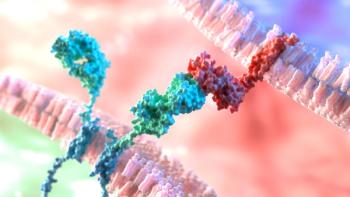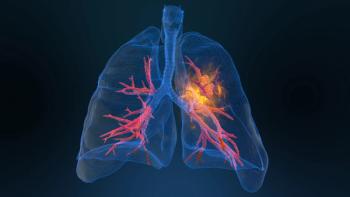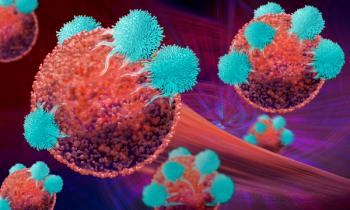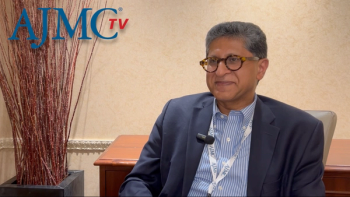
- October 2020
- Volume 26
- Issue 8
Drug That Boosts Immunotherapy Studied as Tool to Battle COVID-19 in Patients With Cancer
An investigational drug, IMM-101, already being studied for its ability to increase the effects of immuno-oncology agents, may be able to prevent or lessen the effects of COVID-19 among those with cancer.
Investigators in Canada are studying whether a drug developed to enhance the effects of immunotherapy can be used to protect vulnerable patients with cancer from the worst effects of coronavirus disease 2019 (COVID-19), especially severe respiratory infections.1
People with cancer are at higher risk of infection with severe acute respiratory syndrome coronavirus 2 (SARS-2-CoV), the virus that causes COVID-19, and if they develop the disease, it’s deadlier. Add in deferred care and the fact that those who receive a new diagnosis of cancer are typically older with comorbidities, and it’s no wonder that the National Cancer Institute projects that the US streak of improved cancer mortality is likely to end after more than 25 years.2
An investigational drug, IMM-101, may help. Under development by Immodulon, IMM-101 is a heat-treated Mycobacterium preparation that is being studied for its ability to both increase the effects of immuno-oncology agents and allow them to be used in combination with fewer toxic effects.3,4 This new study, to see if the drug can prevent or lessen the effects of COVID-19 among those with cancer, got under way in late August, and the first results could be known by the end of the year.5
Chris O’Callaghan, PhD, senior investigator at the Canadian Cancer Trials Group, explained that Rebecca Auer, MD, MSc, FRCSC, a colorectal surgeon at Ottawa Hospital Research Institute, conceived of the idea that IMM-101, could be used in other ways to boost patient immunity. First, Auer studied the use of IMM-101 post-surgery, and then she suggested it could protect cancer patients from COVID-19’s respiratory wrath, O’Callaghan said. In an interview with Evidence-Based Oncology™, O’Callaghan said the mechanism of IMM-101 makes it a particularly good candidate to give patients a measure of protection against respiratory ailments, even though it’s not being developed as a vaccine against SARS-2-CoV.
“IMM-101 is a mycobacterial cell preparation, and it’s very analogous to something called the BCG vaccine,” O’Callaghan said, referring to Bacillus Calmette-Guérin, a tuberculosis vaccine developed in the 1920s that is still used worldwide, although not in the United States. “That vaccine has been noted to have a side effect in not only preventing or reducing the risk of tuberculosis, but it also reduces the risk of multiple other respiratory infections. “So it’s not specifically targeting what most vaccines that we’re familiar with are deriving, what we would call ‘specific immunity’ in the context of the BCG vaccine,” O’Callaghan continued. The BCG vaccine, he explained, is known to have a “side effect of immunity,” in “innate immune response,” or the part of the immune system that reacts any time it encounters a bacterial or viral infection.
“We’re capitalizing on the fact that we know that the BCG vaccine has this side effect, if you will,” he said. And, he said, it should not be a surprise that the century-old BCG vaccine is also in clinical trials asking the same question about COVID-19 protection.
But the BCG vaccine has been administered to healthy people. Those with cancer are already immunocompromised. Isn’t that a risk?
O’Callaghan said the key difference is that IMM-101 is a killed vaccine, one that has already been tested in more than 300 cancer patients. “It’s very, very safe, and it has been used with very
minimal side effects,” he said.
Articles in this issue
over 5 years ago
Too Much, Too Fast: Providers Push Back on CMS’ Final RO Modelover 5 years ago
Connecting the Dotsover 5 years ago
Understanding the Challenges of Rural Cancer Careover 5 years ago
When the Topic Is Dying: A Conversation With Kashyap Patel, MDover 5 years ago
Being Each Other’s Hero: Facing MBC TogetherNewsletter
Stay ahead of policy, cost, and value—subscribe to AJMC for expert insights at the intersection of clinical care and health economics.









